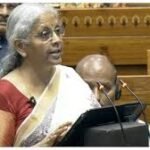Predicting the outcome of a future election with such precision is incredibly challenging due to the numerous variables at play, including political dynamics, economic conditions, social issues, and voter sentiment. However, we can evaluate that ”Aspirations of BJP too high for Loksabha elections 2024 ?”, exploring various factors that might influence the BJP and its potential to secure 400 seats’
Firstly, it’s essential to understand the context and trends leading up to the 2024 elections. The BJP has been a dominant force in Indian politics since its landslide victory in the 2014 elections and its subsequent performance in 2019. Under the leadership of Prime Minister Narendra Modi, the party has implemented various policies and initiatives, such as demonetization, the Goods and Services Tax (GST), and ambitious infrastructure projects like the Smart Cities Mission and the Sagarmala Project. These policies have generated both praise and criticism, shaping the party’s image and impacting its electoral prospects.
To assess the BJP’s chances of winning 400 seats in 2024, we must consider several factors:
- Leadership: Narendra Modi’s popularity remains a significant asset for the BJP. His charisma, oratory skills, and strong leadership have helped the party attract voters across demographic lines. However, factors such as fatigue with incumbency or controversies surrounding the government could affect his popularity and, consequently, the BJP’s electoral performance.
- Alliances and Opposition: The BJP’s ability to form strategic alliances with regional parties and maintain a united front within the National Democratic Alliance (NDA) will be crucial. Additionally, the strength and cohesion of the opposition, particularly the Indian National Congress and regional parties, will shape the electoral landscape. Anti-incumbency sentiments against the BJP or strategic alliances among opposition parties could pose challenges to the BJP’s goal of securing 400 seats.
- Performance and Promises: Voters’ assessment of the BJP’s performance during its tenure and their expectations for the future will heavily influence electoral outcomes. Economic indicators, such as GDP growth, inflation, employment rates, and the government’s handling of issues like agrarian distress, will play a significant role. Fulfillment of past promises and the credibility of new pledges made by the BJP will impact voter trust and support.
- Regional Dynamics: India’s diversity and federal structure mean that electoral outcomes are often determined at the regional level. The BJP’s performance in states such as Uttar Pradesh, Maharashtra, Bihar, and West Bengal, which collectively account for a significant number of Lok Sabha seats, will be critical. Regional issues, local leadership, and caste equations will shape voter behavior in these areas.
- Campaign Strategy: The BJP’s ability to craft an effective campaign, leveraging both traditional and digital media platforms, will be essential. Communication strategies, messaging, and the party’s ability to connect with voters at the grassroots level will determine its electoral performance. Additionally, the BJP’s outreach efforts to different demographic groups, including youth, women, and marginalized communities, will impact its electoral fortunes.
- Emerging Issues: Unforeseen events or emerging issues, such as public health crises, natural disasters, or geopolitical tensions, could significantly influence voter behavior and electoral outcomes. The BJP’s response to such challenges and its ability to project strength and stability could sway undecided voters.
Given these factors, achieving a tally of 400 seats would require a combination of factors to align favorably for the BJP. While it’s not impossible, it would necessitate widespread popularity, effective governance, minimal opposition consolidation, and favorable regional dynamics.
However, it’s crucial to acknowledge the inherent uncertainty in electoral politics. Voter behavior can be unpredictable, and unforeseen events can disrupt even the best-laid plans. Moreover, Indian elections are often characterized by complex alliances, coalition politics, and regional variations, making it challenging to predict outcomes with certainty.
In conclusion, while the BJP’s ambition to win 400 seats in the 2024 Lok Sabha elections reflects its confidence and aspirations, achieving this goal will depend on a multitude of factors, many of which are beyond the party’s control. While the BJP remains a formidable political force in Indian politics, the actual electoral outcome will only be known when the votes are cast and counted.





Leave a Reply